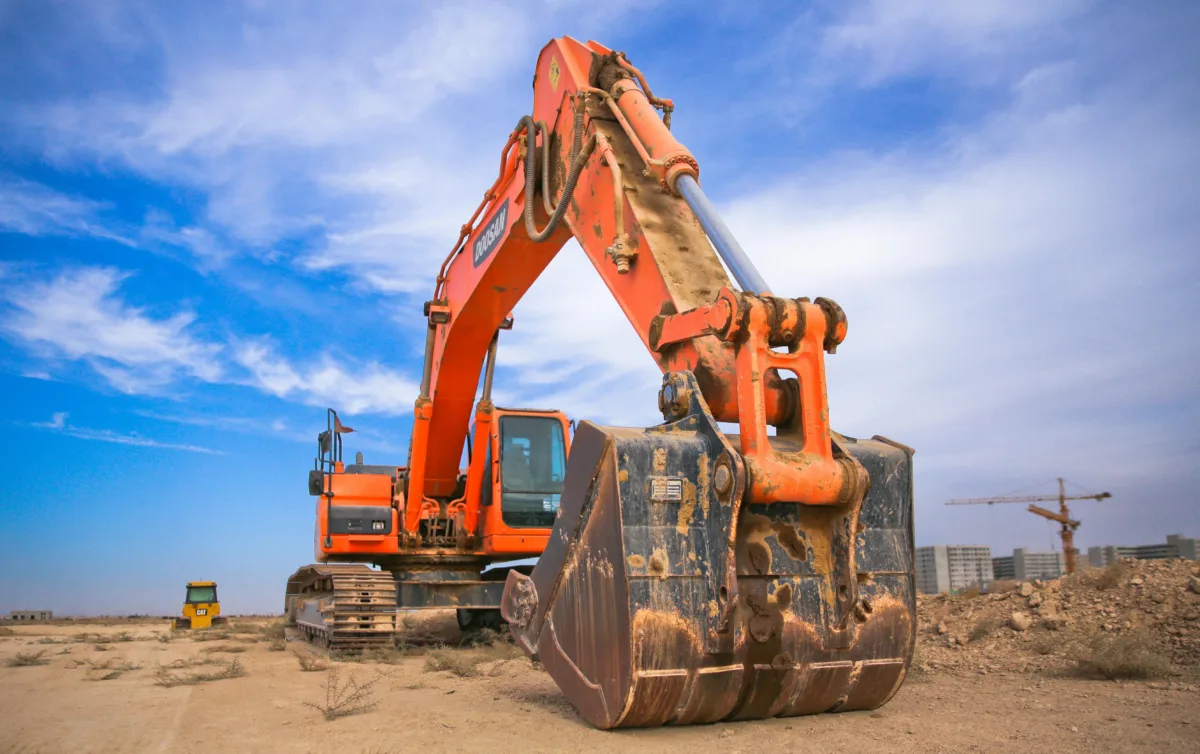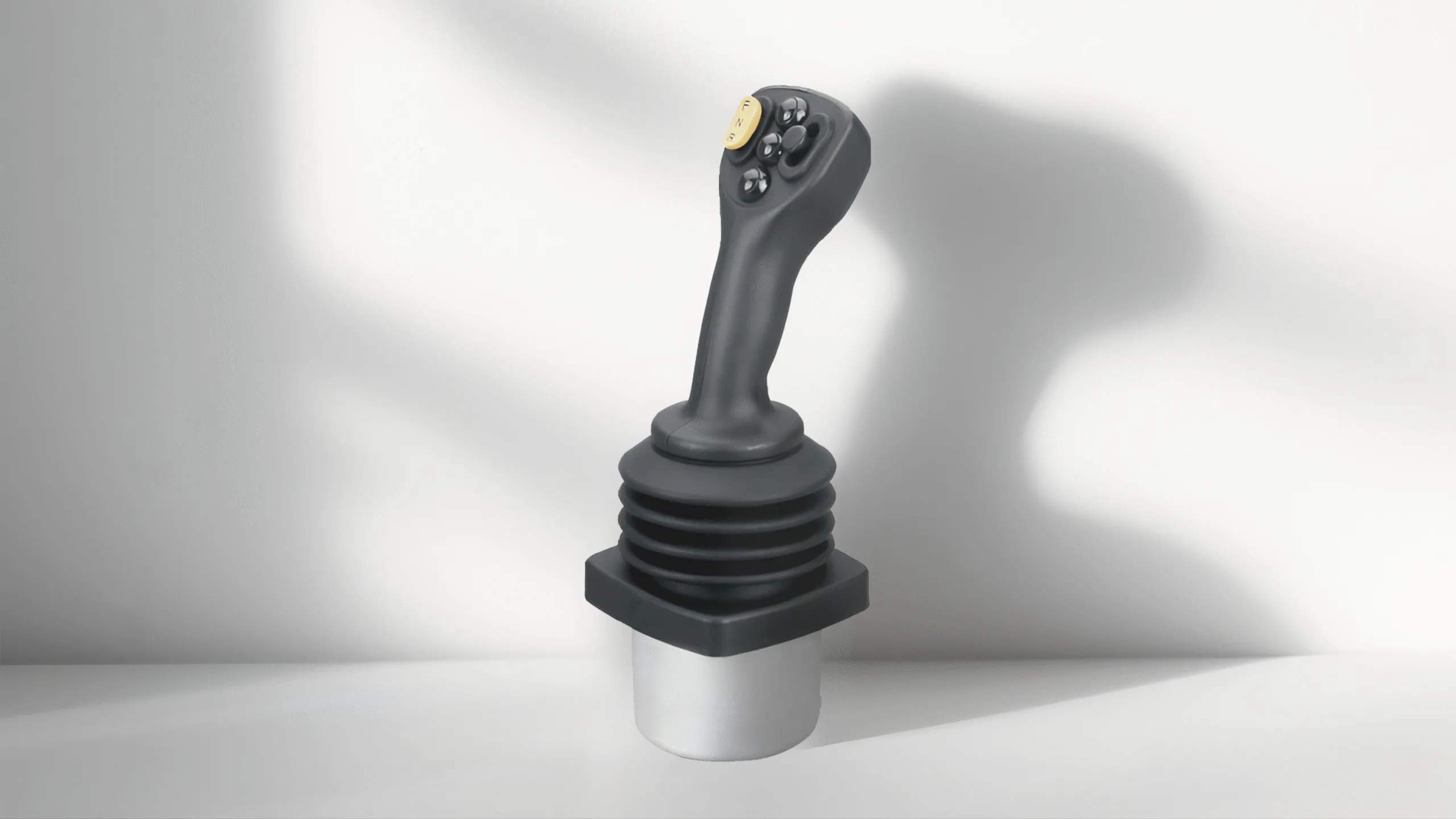7 Critical Reasons Why Industrial Joystick with Buttons Dominates Heavy Machinery Control

In the demanding world of heavy equipment operation, control interface design can mean the difference between precision and peril. The industrial joystick with buttons has emerged as the gold standard across industries from construction to marine operations. These sophisticated control devices combine directional movement with programmable functions in a single rugged package, offering unparalleled operational efficiency in extreme conditions.
Industry Insight: A 2024 Industrial Controls Market Report revealed that 78% of new heavy equipment now features industrial joysticks with buttons as primary control interfaces, replacing traditional lever systems.
1. Multifunctional Control in a Single Unit
Modern industrial joysticks with buttons integrate multiple control functions that previously required separate components:
- Primary axis control for equipment movement (X/Y/Z axes)
- Programmable buttons (typically 4-12 functions)
- Rotary encoders for fine adjustments
- Safety triggers for deadman switches
- Haptic feedback systems for critical alerts
This consolidation reduces operator cognitive load by 40% compared to traditional control panels, according to human factors research from the National Institute for Occupational Safety.
2. Precision Engineering for Critical Applications
The mechanical design of industrial joysticks with buttons ensures sub-millimeter precision:
- Hall effect sensors with 12-bit resolution (0.025° accuracy)
- Spring-centered mechanisms with adjustable return force
- Industrial-grade potentiometers rated for 1 million+ cycles
- Zero-drift calibration maintains accuracy over time
These features enable precise control of heavy loads in applications like container handling where ±2mm positioning accuracy is often required.
3. Ruggedized for Extreme Environments
Unlike consumer-grade alternatives, proper industrial joysticks with buttons are built to withstand:
- IP67/IP69K protection against dust, water jets, and steam cleaning
- Vibration resistance up to 5G (MIL-STD-810G certified)
- Wide temperature operation (-40°C to +85°C)
- Chemical resistance to oils, solvents, and UV radiation
- EMI/RFI shielding for electrical interference protection
These specifications ensure reliable operation in industries like mining where equipment faces constant exposure to abrasive dust and mechanical shocks.
4. Ergonomic Advantages for Operator Health
The human-centered design of industrial joysticks with buttons addresses chronic operator challenges:
- Contoured grips reduce hand fatigue by 35% during extended shifts
- Adjustable resistance accommodates different strength operators
- Thumb-activated buttons minimize finger movement strain
- Palm rests distribute pressure evenly across the hand
A 2023 ergonomics study found these features can reduce work-related musculoskeletal disorders by up to 60% in crane operators.
Technical Note: Premium industrial joysticks with buttons now incorporate strain gauge technology that automatically adjusts resistance based on grip pressure, further optimizing operator comfort.
5. Smart Connectivity for Industry 4.0
Modern industrial joysticks with buttons integrate seamlessly with digital control systems:
- CAN bus/J1939 compatibility for vehicle networks
- Bluetooth/IO-Link for wireless configurations
- Predictive maintenance through usage monitoring
- Firmware updates via USB or OTA
These capabilities enable real-time performance monitoring and remote diagnostics, reducing downtime by up to 30% in smart factory applications.
6. Customization for Specialized Applications
Leading manufacturers offer extensive customization options:
- Button configurations (momentary, latching, illuminated)
- Control profiles (linear, exponential, S-curve response)
- Mounting options (panel, armrest, suspension)
- Special materials (anti-static, antimicrobial, or fire-retardant)
This flexibility makes industrial joysticks with buttons adaptable to unique requirements in industries like offshore drilling or food processing.
7. Safety and Compliance Advantages
Critical safety features built into industrial joysticks with buttons include:
- Dual-channel outputs for SIL-2/PLe safety systems
- Emergency stop integration with mushroom buttons
- Position validation through redundant sensors
- Fail-safe neutrals that engage during power loss
These features help equipment meet stringent standards like ISO 13849, ANSI B11.19, and EN 13000 for lifting equipment.
Choosing the Right Industrial Joystick
When selecting an industrial joystick with buttons, consider these key factors:
- Environmental rating needed for your application
- Control resolution requirements
- Number and type of auxiliary functions required
- Communication protocol compatibility
- Ergonomic needs of your operators
- Safety certification requirements
- Customization options for unique use cases
The advanced industrial joysticks with buttons available today represent a significant evolution from basic control levers. By combining precision engineering with intelligent features and rugged construction, these control interfaces are setting new standards for productivity, safety, and operator comfort across industrial sectors.
Final Recommendation: For operations requiring the highest reliability, look for industrial joysticks with buttons that offer at least IP67 protection, CAN bus connectivity, and SIL-2 safety certification as baseline specifications.


